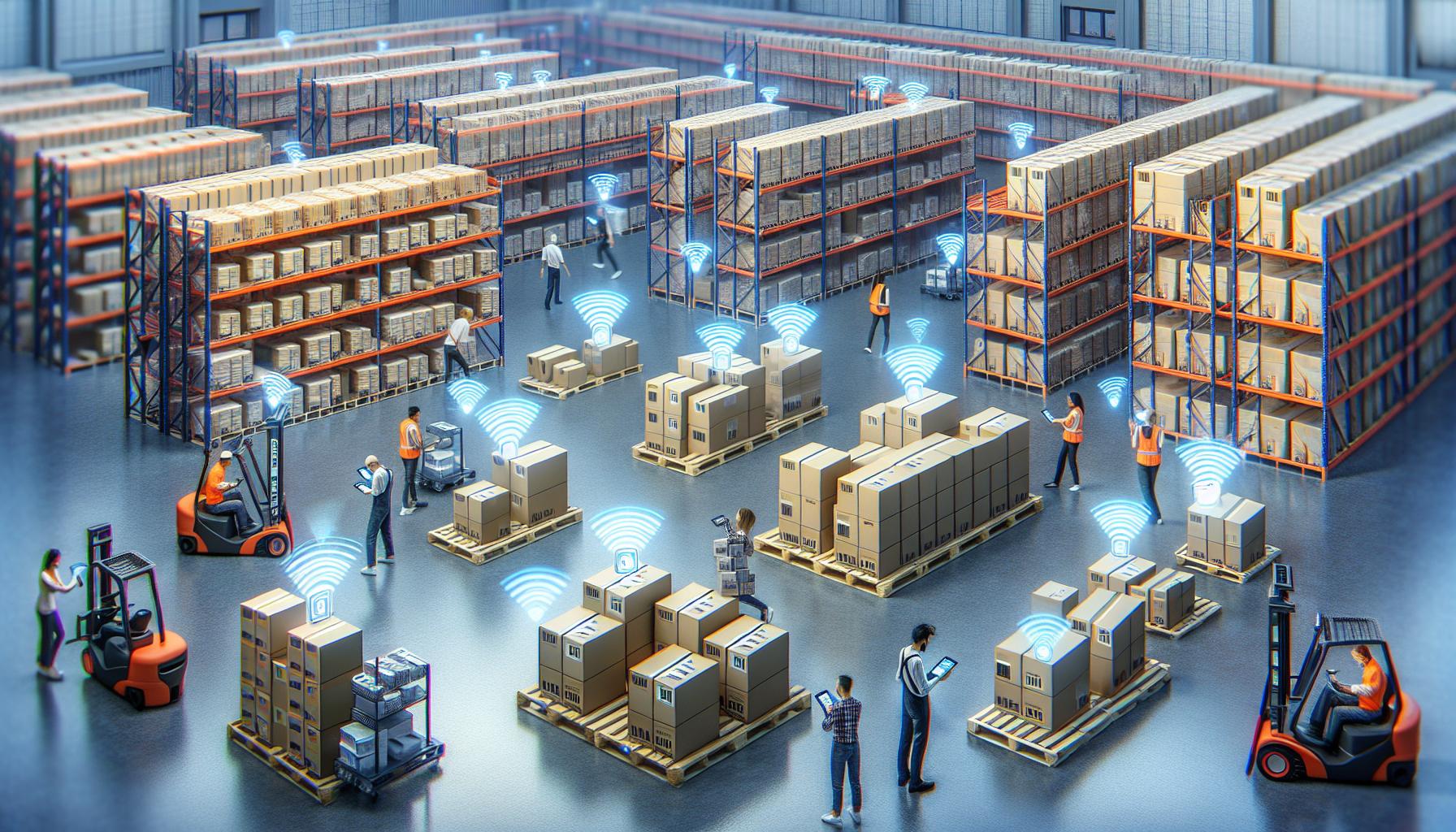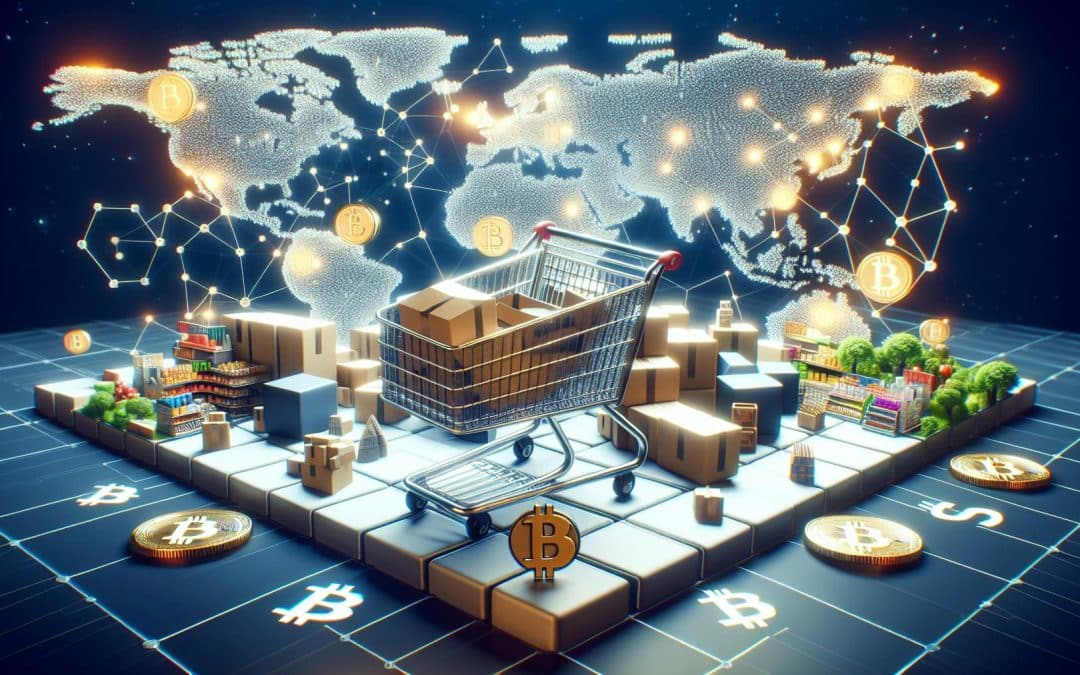Have you ever wondered how blockchain technology is revolutionizing the retail supply chain industry? Imagine a seamless, transparent system where each step of the supply chain process is securely recorded and easily accessible. With blockchain, it’s no longer just a concept but a reality that is reshaping how products move from manufacturers to consumers.
In the world of retail, ensuring the authenticity and traceability of products is crucial. Blockchain technology offers a decentralized solution that enhances trust and efficiency throughout the supply chain. By leveraging blockchain in retail supply chains, companies can streamline operations, reduce fraud, and provide consumers with real-time visibility into the journey of their purchases.
Embracing blockchain in the retail supply chain is not just a trend but a strategic move towards a more secure and transparent future. Join us as we delve deeper into the impact of blockchain technology on reshaping the retail supply chain landscape.
Understanding Blockchain in Retail
Blockchain technology is revolutionizing the retail supply chain industry by providing secure and transparent systems for tracking products from manufacturers to consumers. The implementation of blockchain in the retail sector enhances trust, efficiency, and visibility for both companies and consumers. This strategic shift towards a more secure and transparent future is reshaping the way retail operations are conducted.
Blockchain in the retail sector ensures the authenticity and traceability of products throughout the supply chain. By utilizing decentralized ledger technology, retailers can securely record transactions, ensuring the integrity of the data and providing a tamper-proof system. This increased transparency helps in building trust among all stakeholders, including manufacturers, distributors, retailers, and end consumers.
Decentralized eCommerce platforms powered by blockchain technology offer significant advantages in terms of security and efficiency. Smart contracts, a key feature of blockchain, enable automated and secure transactions, reducing the need for intermediaries and streamlining processes. This not only enhances the speed of transactions but also minimizes the risk of fraud, thereby ensuring secure online transactions in the retail sector.
Blockchain’s impact on retail supply chain management is profound, as it enables real-time tracking of products, leading to improved inventory management and reduced instances of counterfeiting. The immutability of blockchain records ensures that the provenance of products can be easily verified, enhancing transparency in the retail ecosystem.
The integration of cryptocurrency payment systems with eCommerce platforms is gaining traction, offering customers more payment options and faster transaction processing. Retailers are exploring blockchain eCommerce solutions to capitalize on digital currency market trends and provide customers with secure and efficient payment methods.
As blockchain continues to disrupt the eCommerce landscape, both established retailers and startups are investing in blockchain technologies to enhance data security, prevent fraud, and provide a seamless shopping experience for customers. By leveraging the benefits of blockchain in retail, businesses can create a trusted and transparent environment that meets the evolving demands of the digital retail market.
Importance of Supply Chain Management in Retail

Efficient supply chain management in the retail sector is crucial for maintaining smooth operations and meeting customer demands. By leveraging blockchain technology, you can enhance transparency, trust, and efficiency in your retail supply chain.
Enhancing Transparency and Traceability
Implementing blockchain solutions in your supply chain enables you to track products at every stage of the journey, ensuring transparency in sourcing, production, and distribution. With immutable records stored on a decentralized ledger, you can easily verify the authenticity of products and trace their origins. This transparency builds trust among consumers and stakeholders, strengthening your brand reputation.
Improving Inventory Management
Blockchain technology with smart contracts simplifies inventory management processes by automating tasks such as order processing, invoicing, and payment settlements. Smart contracts execute predefined actions automatically when certain conditions are met, streamlining inventory operations and reducing manual errors. This automation enhances efficiency and accuracy in managing inventory levels, ensuring a seamless shopping experience for your customers.
Reducing Counterfeiting and Fraud
By incorporating blockchain into your supply chain, you can reduce the risk of counterfeiting and fraud. The decentralized nature of blockchain ensures that transactions are secure and tamper-proof, eliminating the possibility of unauthorized alterations to product information. This increased security minimizes the chances of counterfeit products entering the market, safeguarding your brand’s integrity and protecting consumers from fraudulent activities.
Enabling Real-time Product Tracking
Blockchain technology allows for real-time tracking of products as they move through the supply chain. By scanning item-specific QR codes or RFID tags, you can access detailed information about each product’s journey, including its origin, processing, and delivery status. Real-time tracking enhances visibility and allows you to respond promptly to any supply chain disruptions, ensuring timely deliveries and proactive inventory management.
Stimulating Innovation and Competitiveness
Adopting blockchain technology in retail supply chain management positions your business as an innovator in the industry, attracting tech-savvy consumers and investors. By embracing decentralized ledger systems and smart contracts, you demonstrate a commitment to efficiency, security, and transparency in your operations. This emphasis on technological innovation not only differentiates your brand from competitors but also sets the stage for sustainable growth and long-term success in the digital retail landscape.
Use Cases of Blockchain in Retail Supply Chain
Enhance your retail supply chain operations with blockchain technology. By leveraging the power of blockchain, you can improve transparency, trust, and efficiency in your retail processes. Let’s explore some key use cases where blockchain makes a significant impact:
Improved Traceability and Authentication
Blockchain technology allows you to track products seamlessly from manufacturers to consumers. The decentralized ledger ensures that each transaction is securely recorded, providing a transparent and tamper-proof record of the product’s journey. This enhanced traceability helps in verifying the authenticity of goods, reducing the risk of counterfeit products entering the supply chain.
Real-Time Inventory Management
With blockchain integration, you can achieve real-time visibility into your inventory. By maintaining a shared ledger with accurate and up-to-date information on stock levels, reorder points, and demand trends, you can optimize inventory management processes. This enables you to reduce stockouts, minimize overstock situations, and enhance overall supply chain efficiency.
Smart Contract Automation
Blockchain smart contracts revolutionize the way contracts are executed in retail supply chains. Smart contracts are self-executing contracts with predefined rules encoded into the blockchain. With automation capabilities, smart contracts facilitate seamless transactions, streamline payment processes, and enforce agreements without the need for intermediaries. This automation not only reduces operational costs but also ensures faster and more secure transactions.
Supply Chain Transparency and Trust
Blockchain enhances transparency and builds trust among supply chain participants. By sharing real-time data on products, shipments, and transactions across a secure network, blockchain fosters a higher level of trust among stakeholders. This transparency helps in identifying inefficiencies, resolving disputes, and strengthening relationships throughout the supply chain ecosystem.
Enhanced Security Against Fraud
One of the key benefits of blockchain in retail supply chains is the enhanced security it offers against fraud and counterfeiting. The decentralized nature of blockchain ensures that all transactions are immutable and cannot be altered retroactively. This feature significantly reduces the risk of fraudulent activities, safeguarding your supply chain from unauthorized access and malicious attacks.
By implementing blockchain technology in your retail supply chain, you can unlock a new level of efficiency, transparency, and security. Embrace the potential of blockchain to revolutionize your supply chain operations and stay ahead in today’s competitive digital retail market.
Future Trends and Opportunities
In the evolving landscape of retail supply chains, blockchain technology continues to present promising trends and opportunities for businesses looking to enhance their operations. By leveraging blockchain solutions, you can stay ahead of the curve and unlock various advantages in the digital retail market. Let’s delve into some future trends and opportunities that blockchain offers:
Enhanced Retail Transparency:
Blockchain’s immutable and transparent nature can revolutionize how retail operations maintain transparency. By utilizing blockchain in your supply chain, you ensure secure tracking of products, authenticate sourcing, and provide end-to-end visibility to consumers. This level of transparency not only builds trust but also differentiates your brand in a competitive digital world.
Streamlined Inventory Management:
With decentralized eCommerce platforms powered by blockchain technology, managing inventory becomes more efficient and accurate. Real-time updates on product availability, automated inventory replenishment through smart contracts, and seamless integration with suppliers enhance inventory control. This streamlined process helps you meet customer demands effectively.
Increased Security Against Fraud:
Blockchain’s distributed ledger technology strengthens security measures against fraud in eCommerce transactions. By implementing blockchain solutions, you secure online transactions, protect sensitive customer data, and prevent fraudulent activities. This heightened security not only safeguards your business but also boosts consumer confidence in your brand.
Investment Opportunities in Blockchain:
The rising adoption of blockchain in the retail sector creates new investment prospects for businesses and entrepreneurs. From blockchain retail startups to established companies integrating blockchain technology, there are diverse opportunities to explore. Investing in blockchain solutions for eCommerce can lead to long-term benefits, such as improved efficiency, reduced costs, and enhanced customer trust.
Emerging Digital Currency Market Trends:
The integration of cryptocurrency payment systems in eCommerce platforms opens up new avenues for secure and efficient transactions. With the growing popularity of digital currencies, businesses can provide customers with alternative payment options and faster payment processing. Keeping pace with the digital currency market trends ensures that you cater to the evolving payment preferences of consumers.
As you navigate the dynamic landscape of retail supply chains, embracing blockchain technology can supercharge your operations, elevate customer experiences, and position your business for success in the competitive digital marketplace. Stay informed about the latest blockchain innovations and seize the opportunities they present for your retail business.
Conclusion
You’ve explored the transformative power of blockchain in the retail supply chain industry, witnessing its ability to revolutionize operations with enhanced security, transparency, and efficiency. Embracing blockchain technology opens doors to increased trust, streamlined inventory management, and protection against fraudulent activities. The integration of cryptocurrency payments further propels eCommerce platforms into the future. As you look ahead, the opportunities in blockchain present a promising landscape for investment and growth. By adopting blockchain solutions, businesses can optimize their processes, elevate customer experiences, and stay ahead in the dynamic digital market.
Frequently Asked Questions
What is blockchain technology?
Blockchain technology is a decentralized, secure system used to store and track data transactions. It consists of blocks of information linked securely, forming a chain that is resistant to modification.
How is blockchain transforming the retail supply chain industry?
Blockchain is enhancing the retail supply chain industry by ensuring secure tracking of products, enhancing transparency, trust, and efficiency throughout the supply chain.
What are the key benefits of using blockchain in retail operations?
The key benefits of using blockchain in retail operations include authenticity verification, traceability of products, enhanced visibility, increased security against fraud, and streamlined inventory management.
How does blockchain integrate with cryptocurrency payment systems?
Blockchain technology enables the integration of cryptocurrency payment systems in eCommerce platforms by providing a secure and transparent method of processing transactions using digital currencies.
What future trends and opportunities does blockchain offer in the retail supply chain sector?
Blockchain provides opportunities for enhanced transparency, optimized inventory management, improved security against fraudulent activities, investment opportunities in blockchain technology, and emerging trends in the digital currency market.

